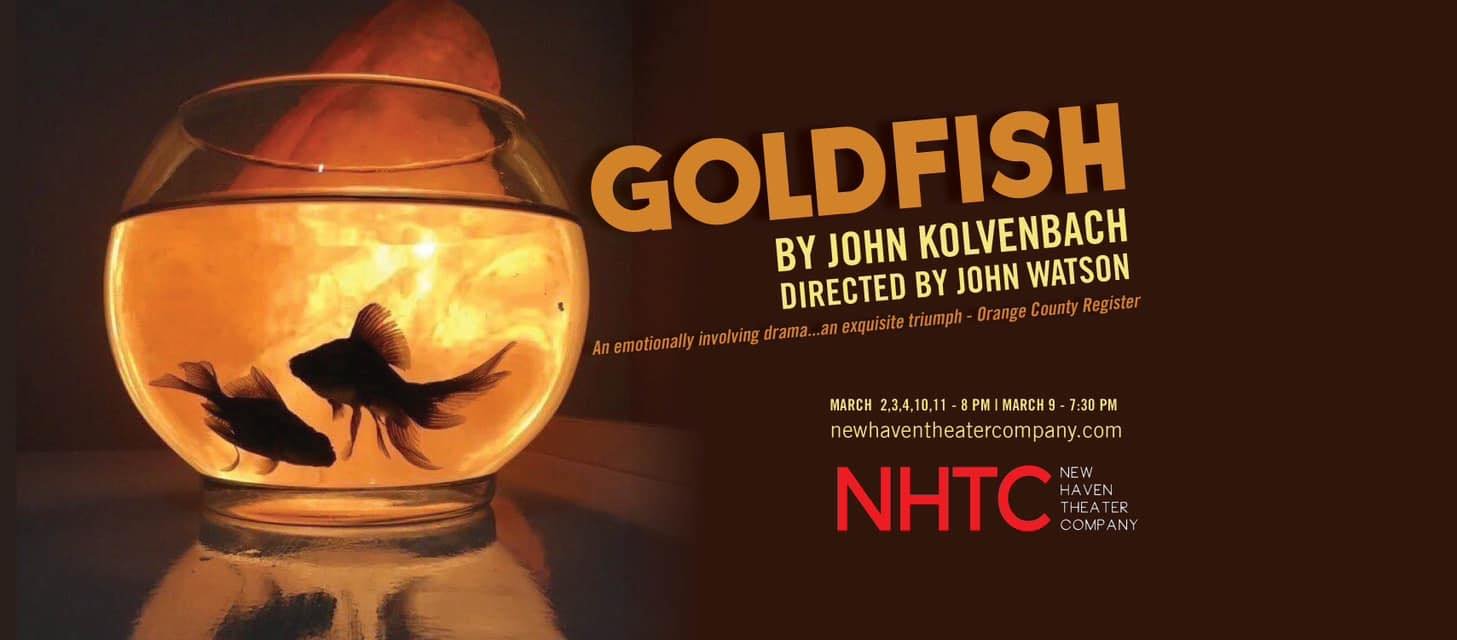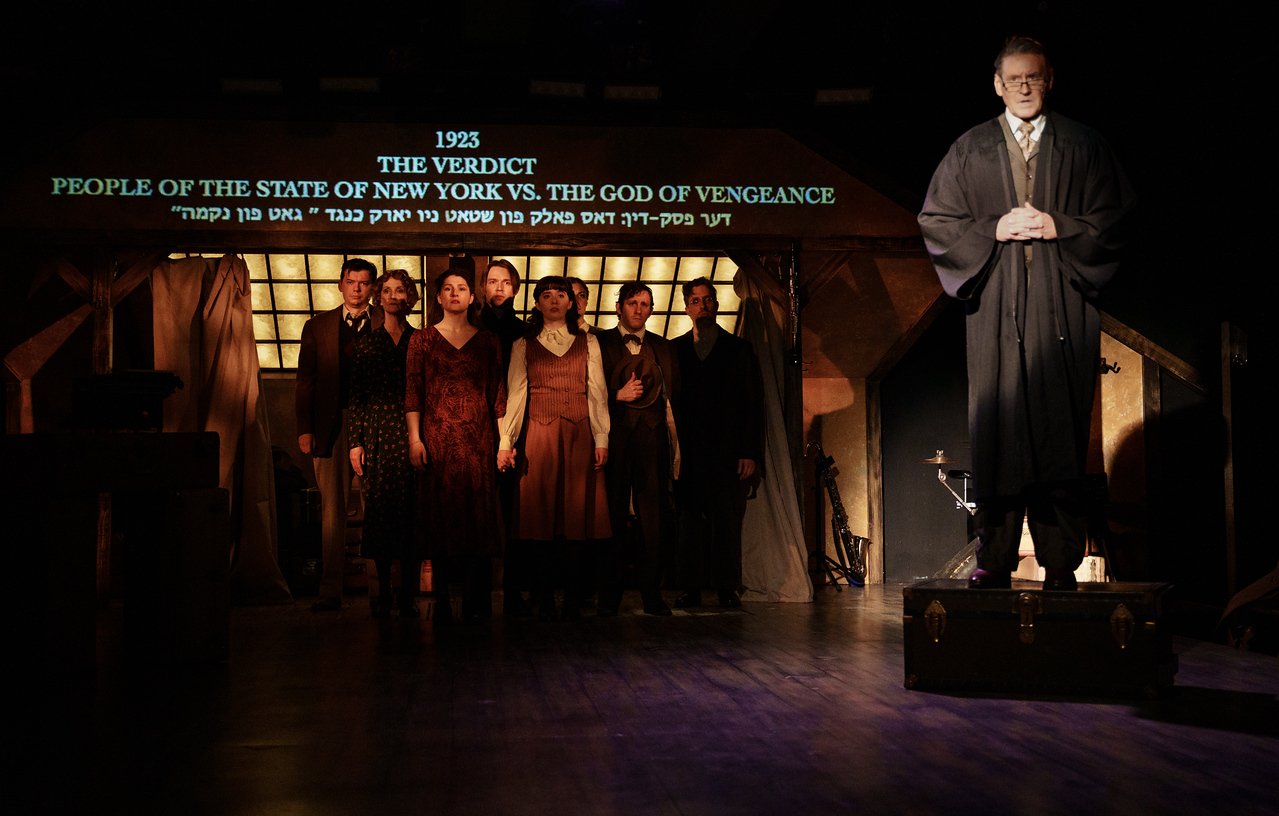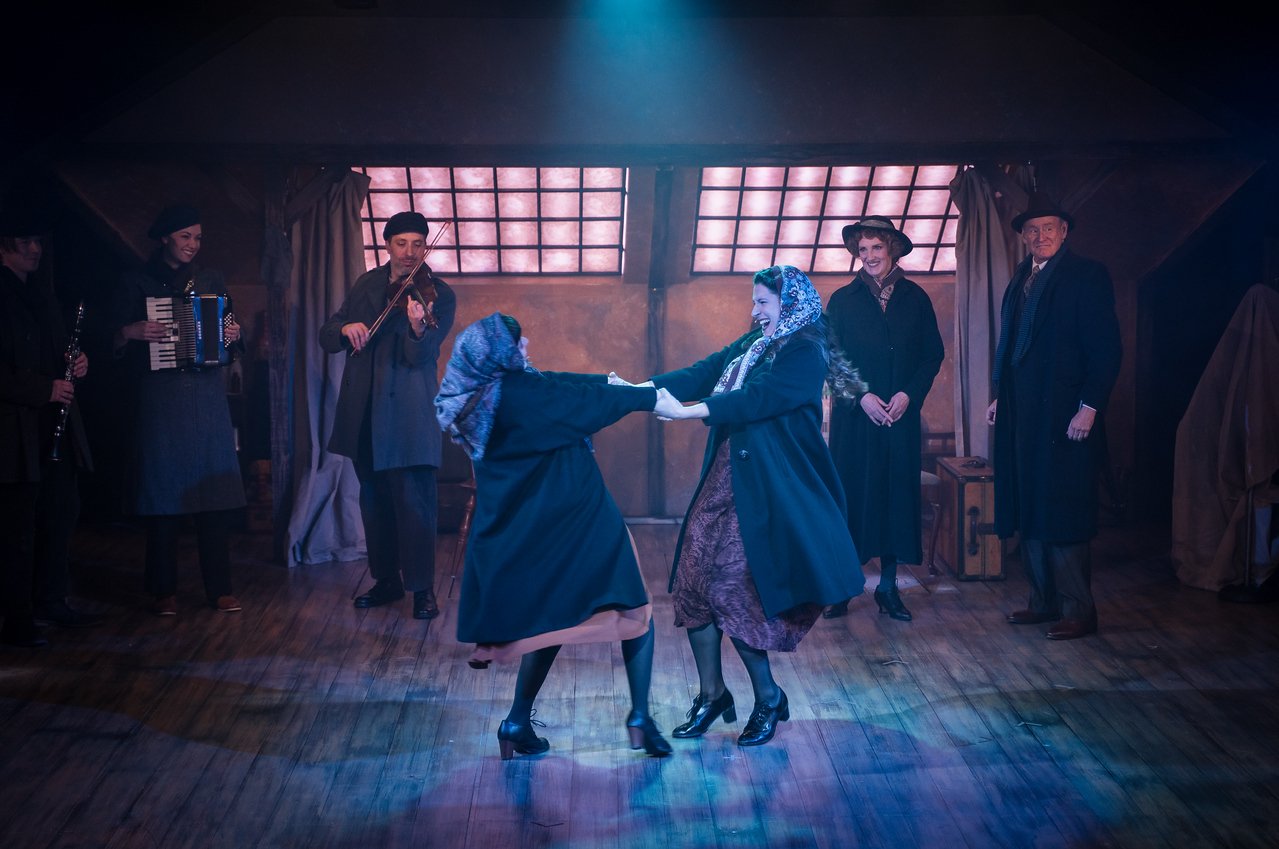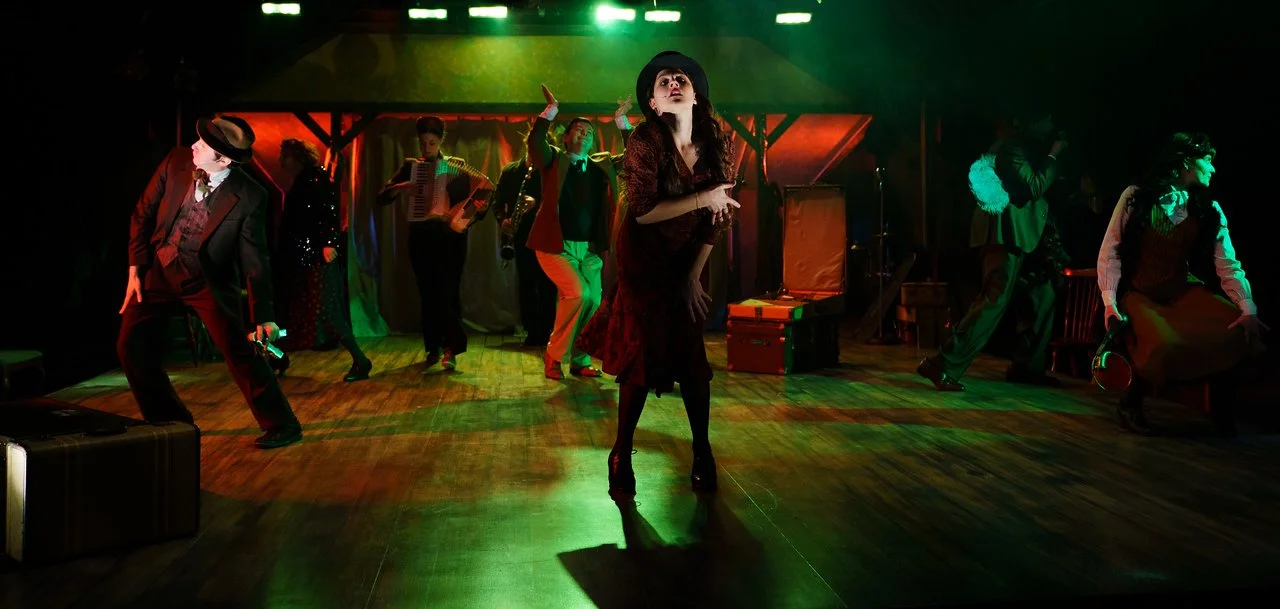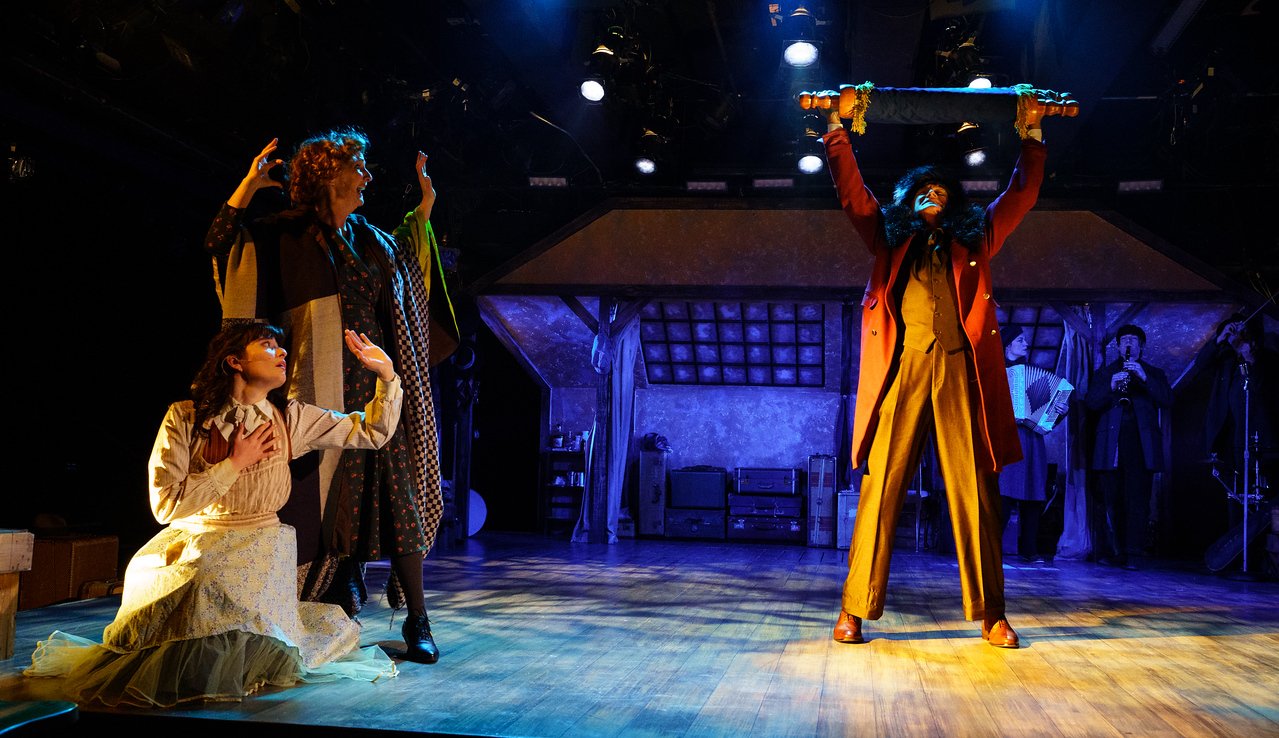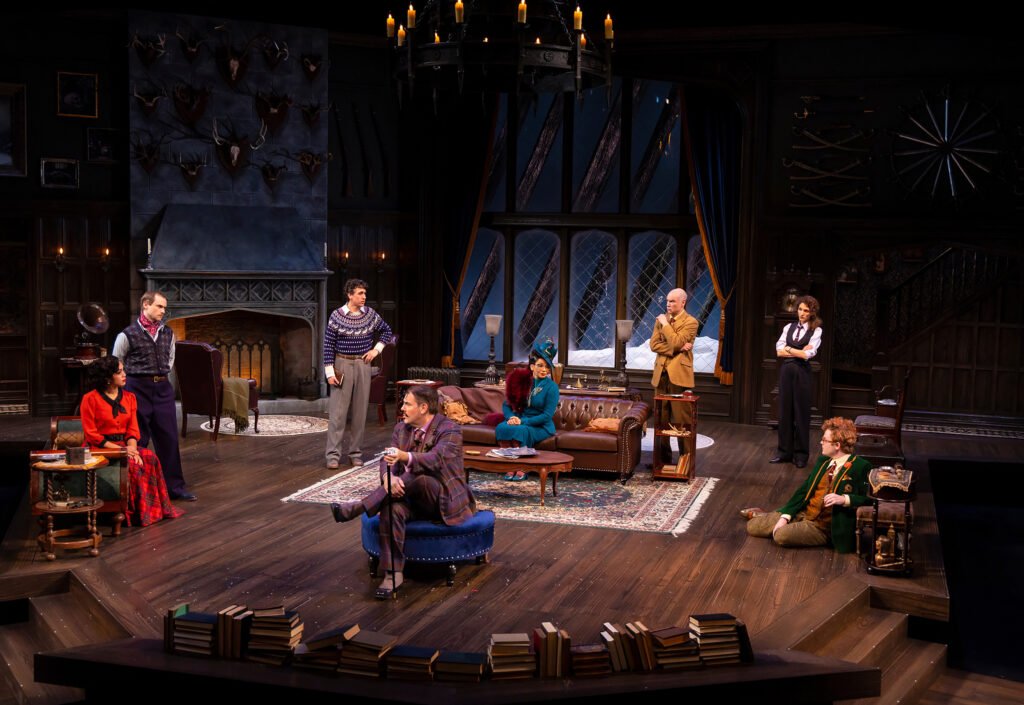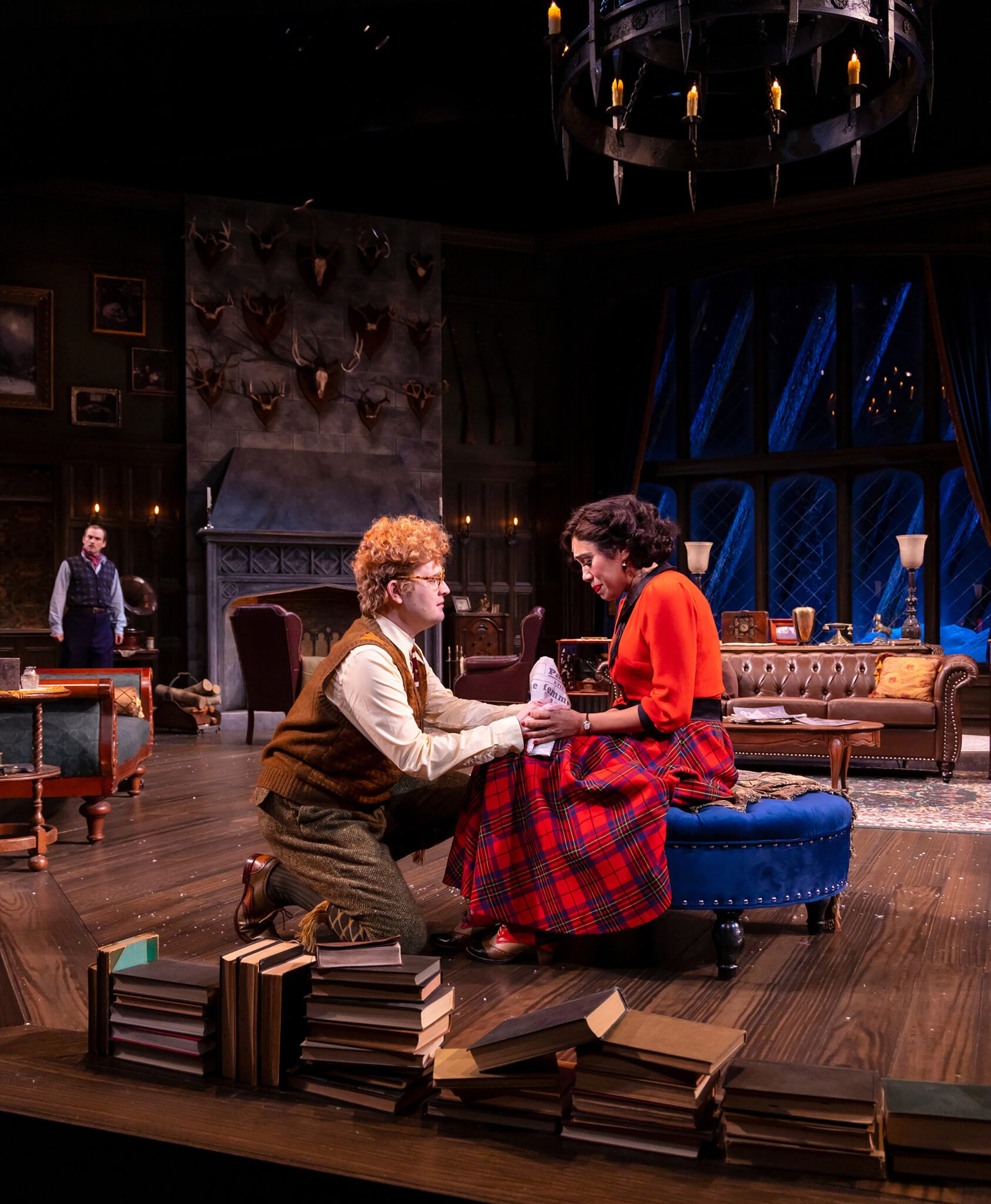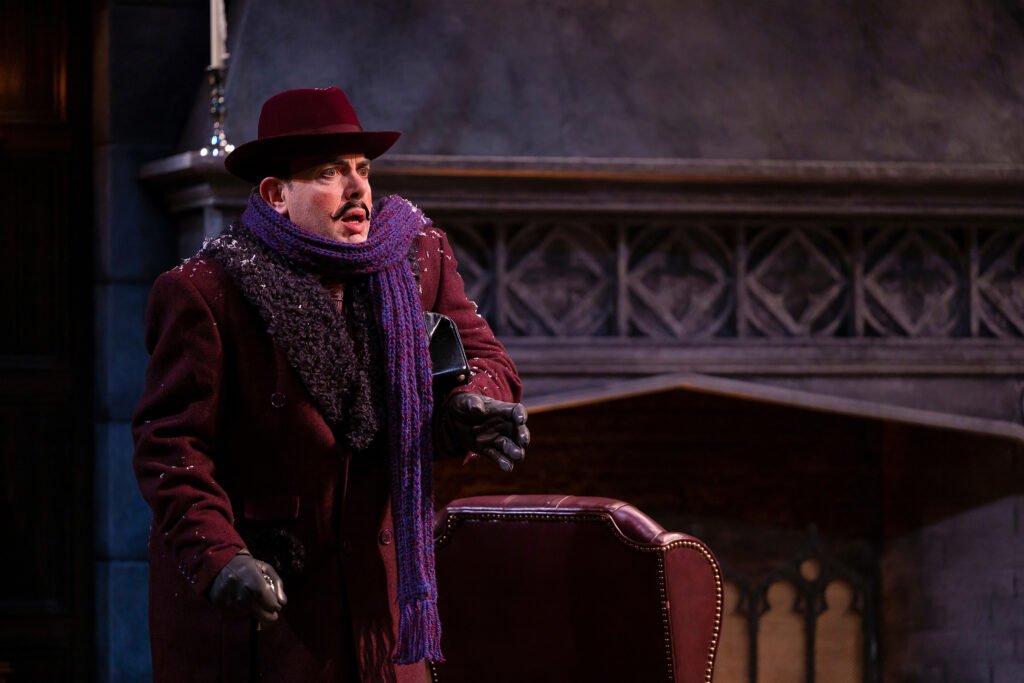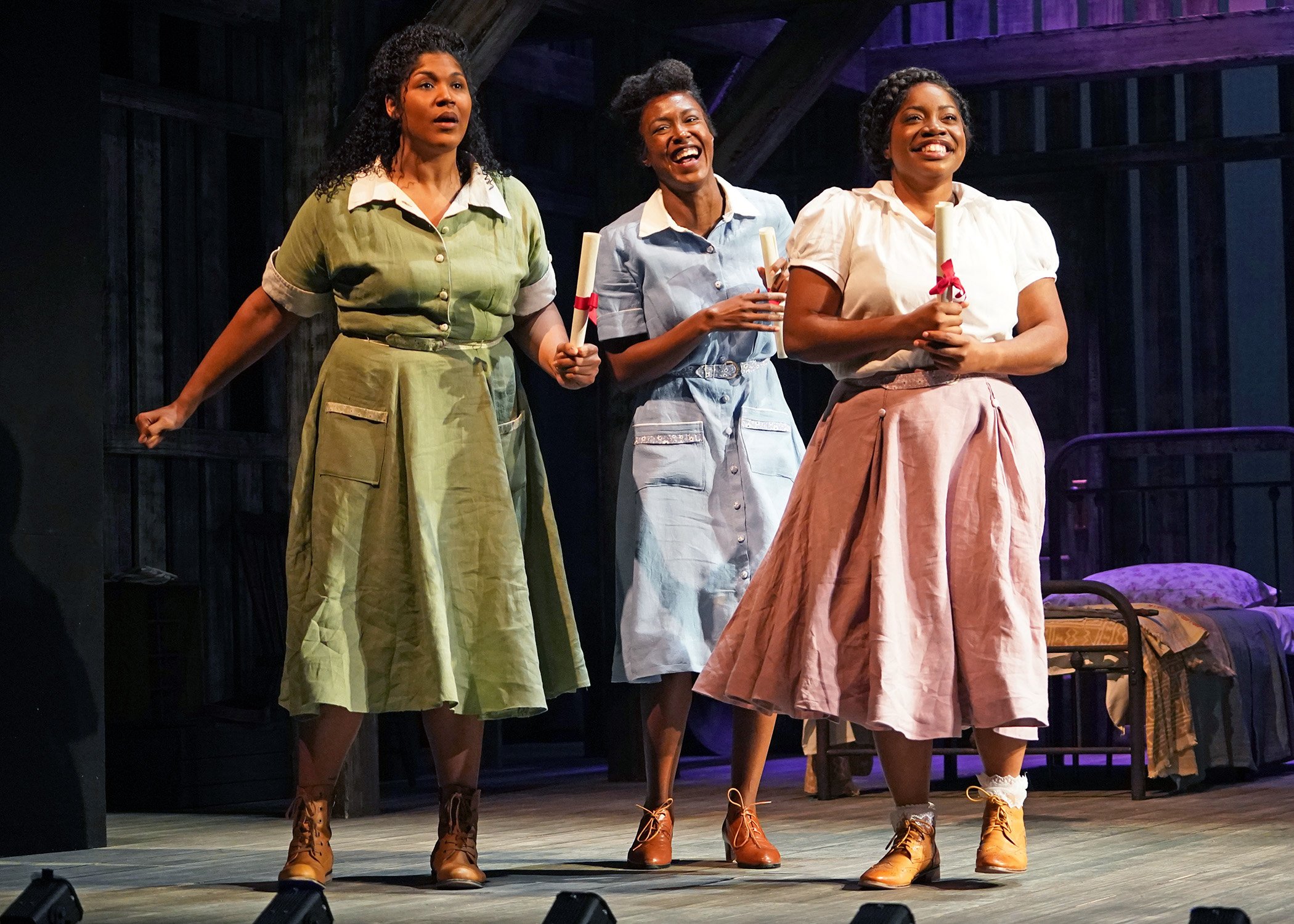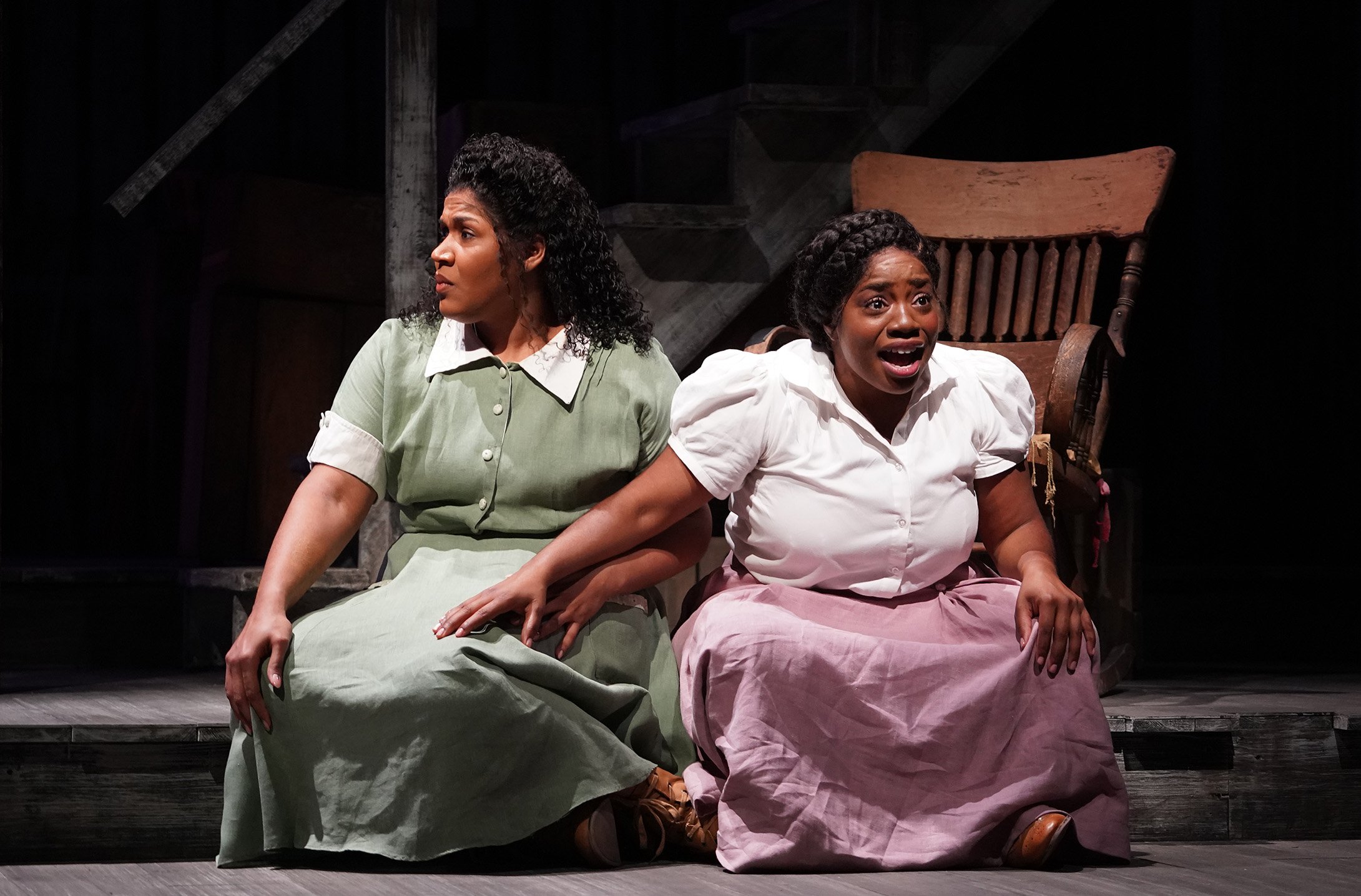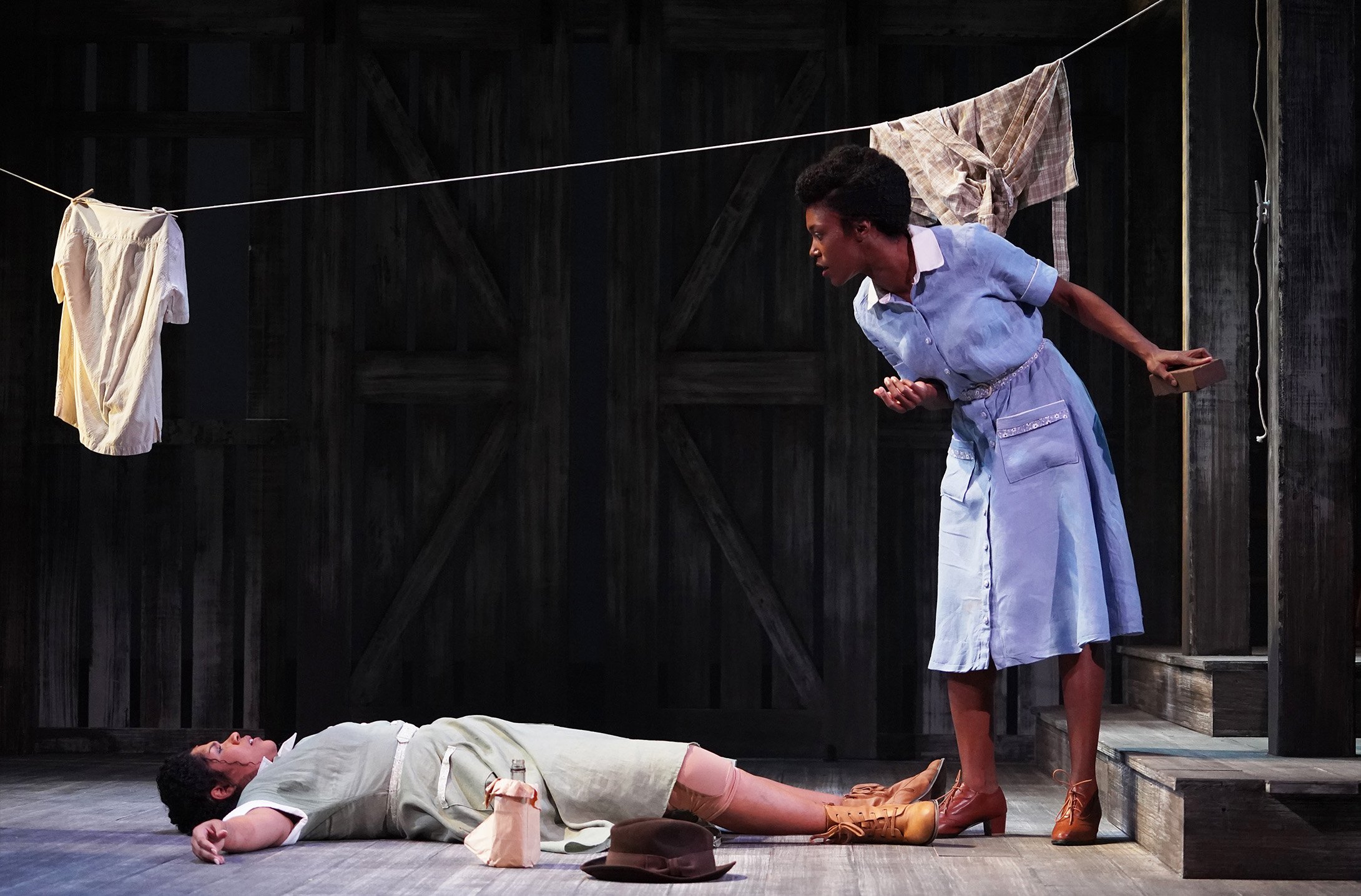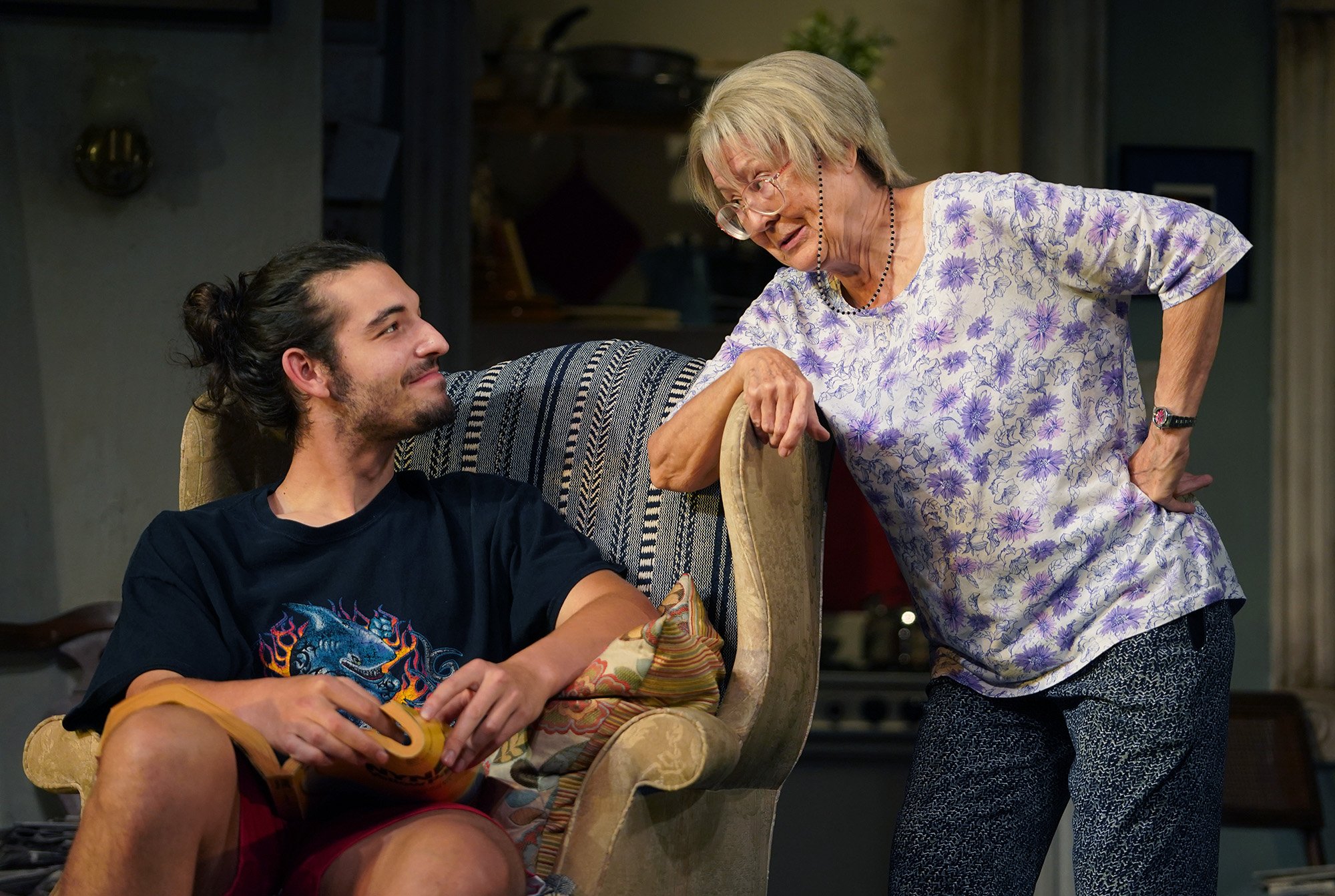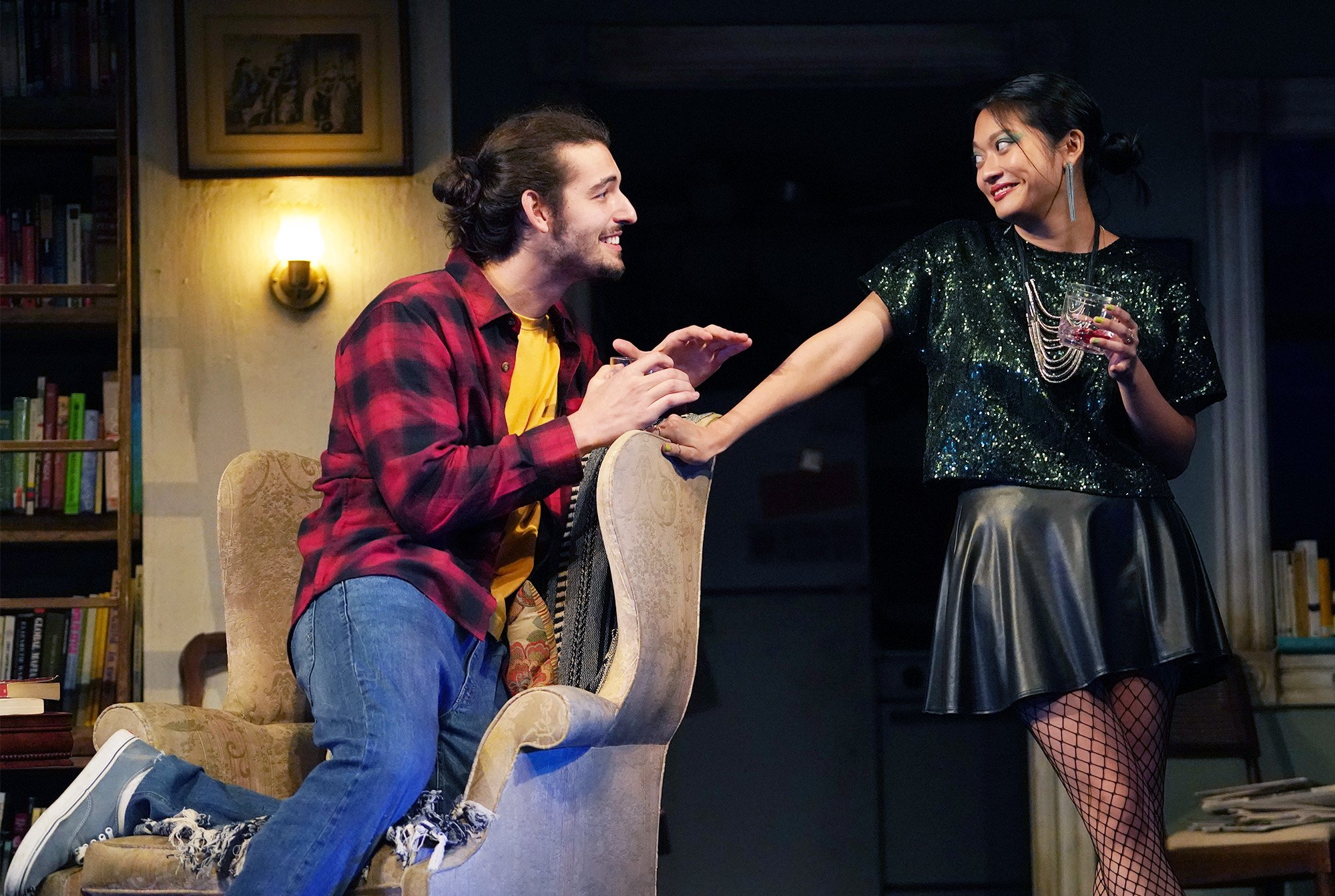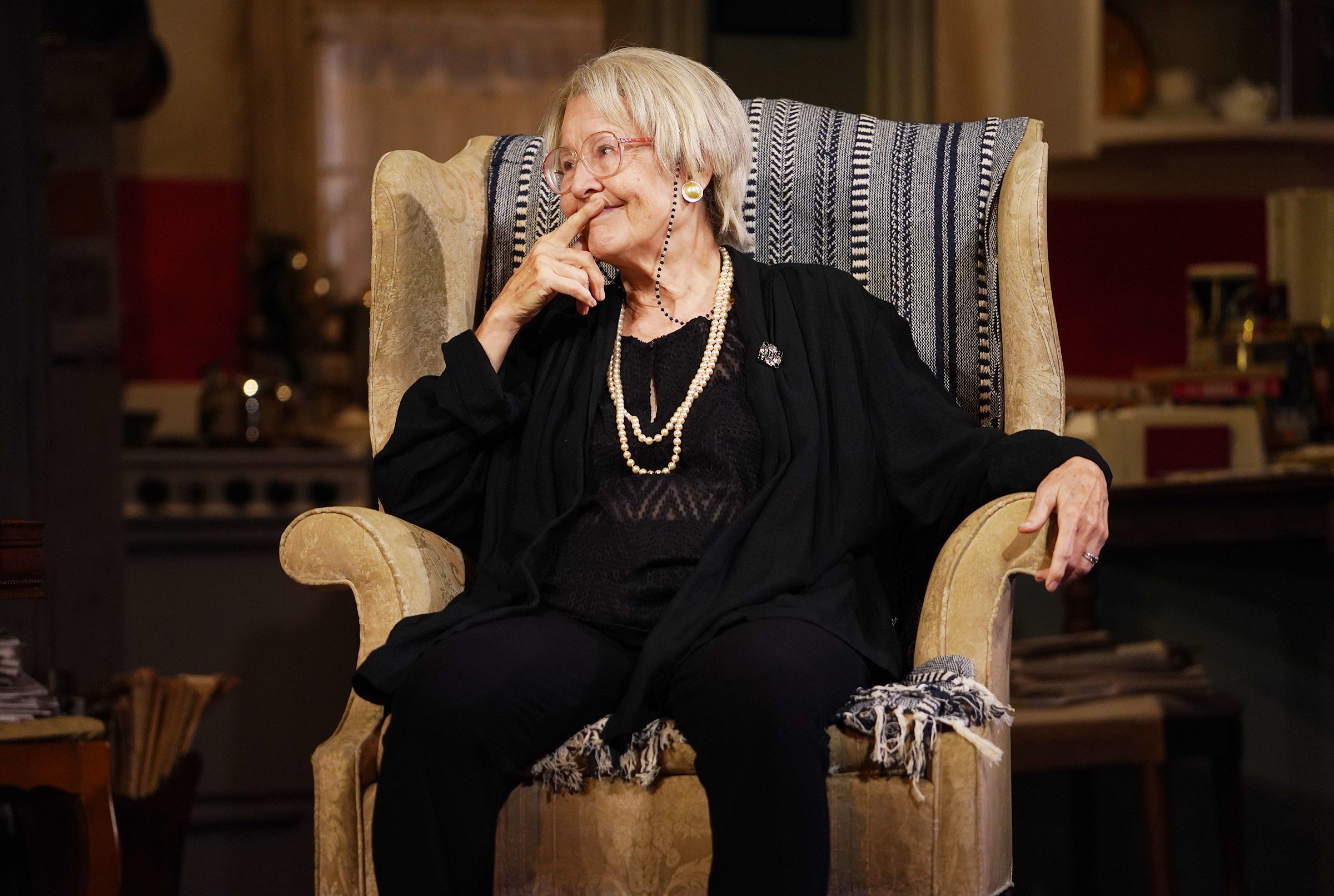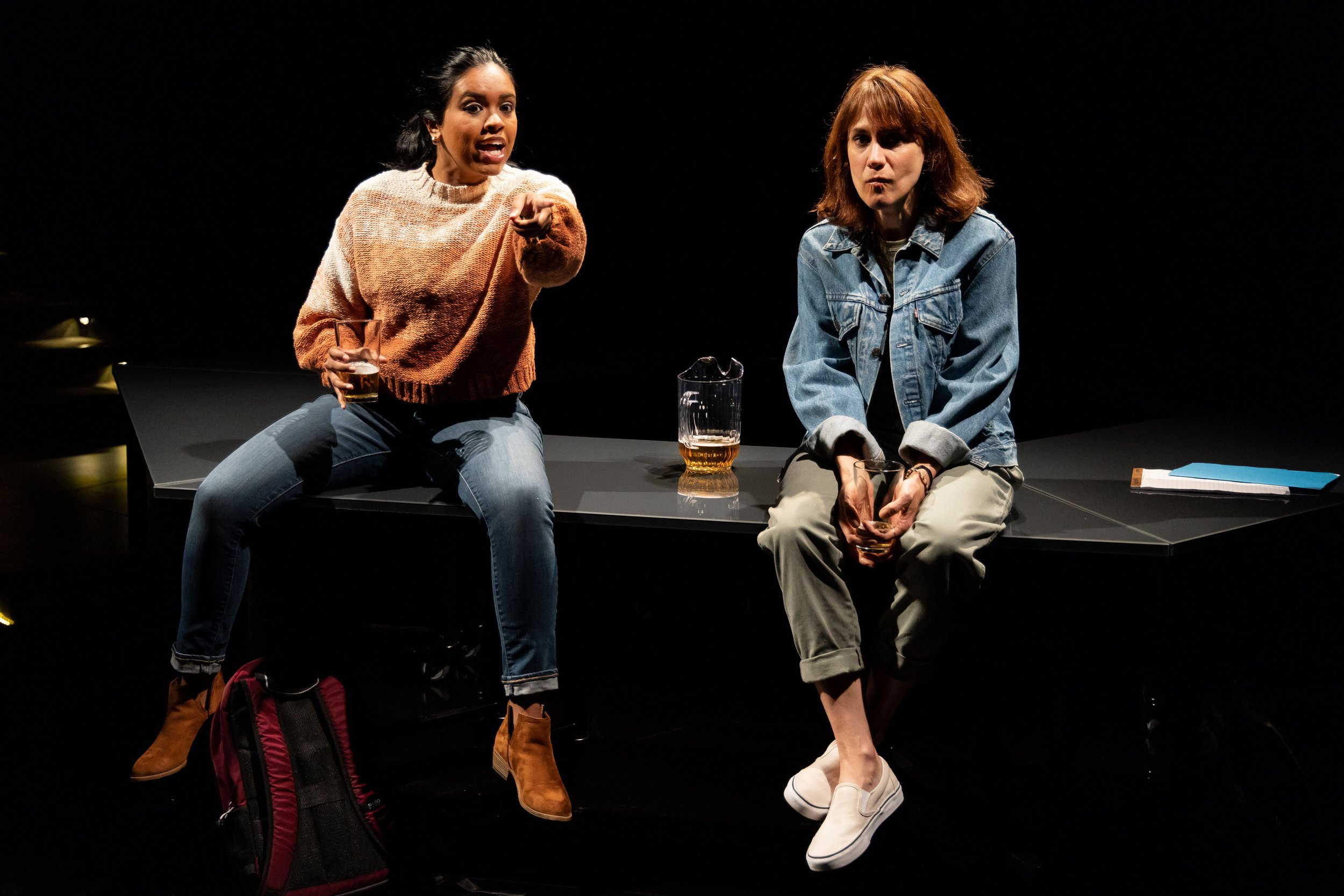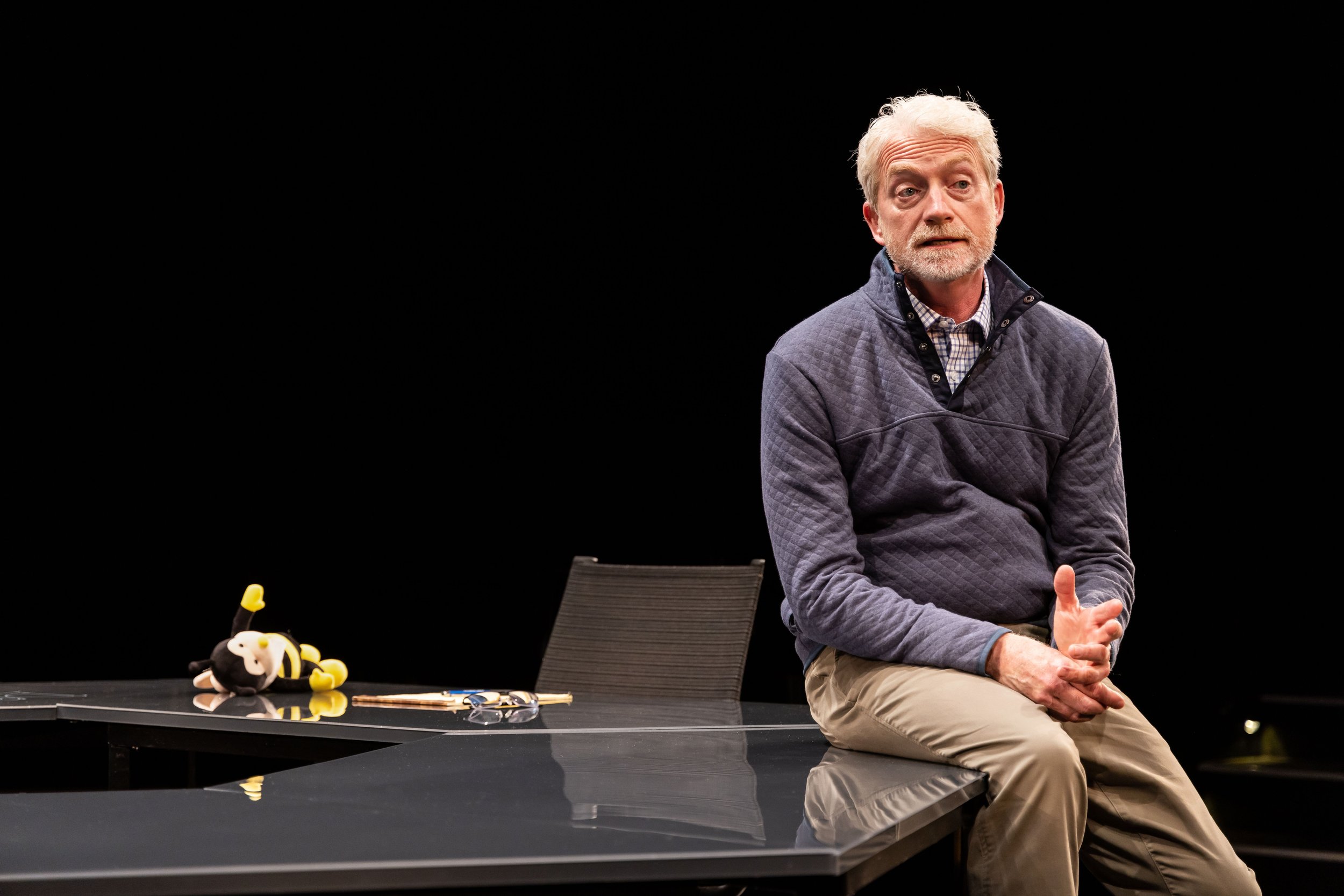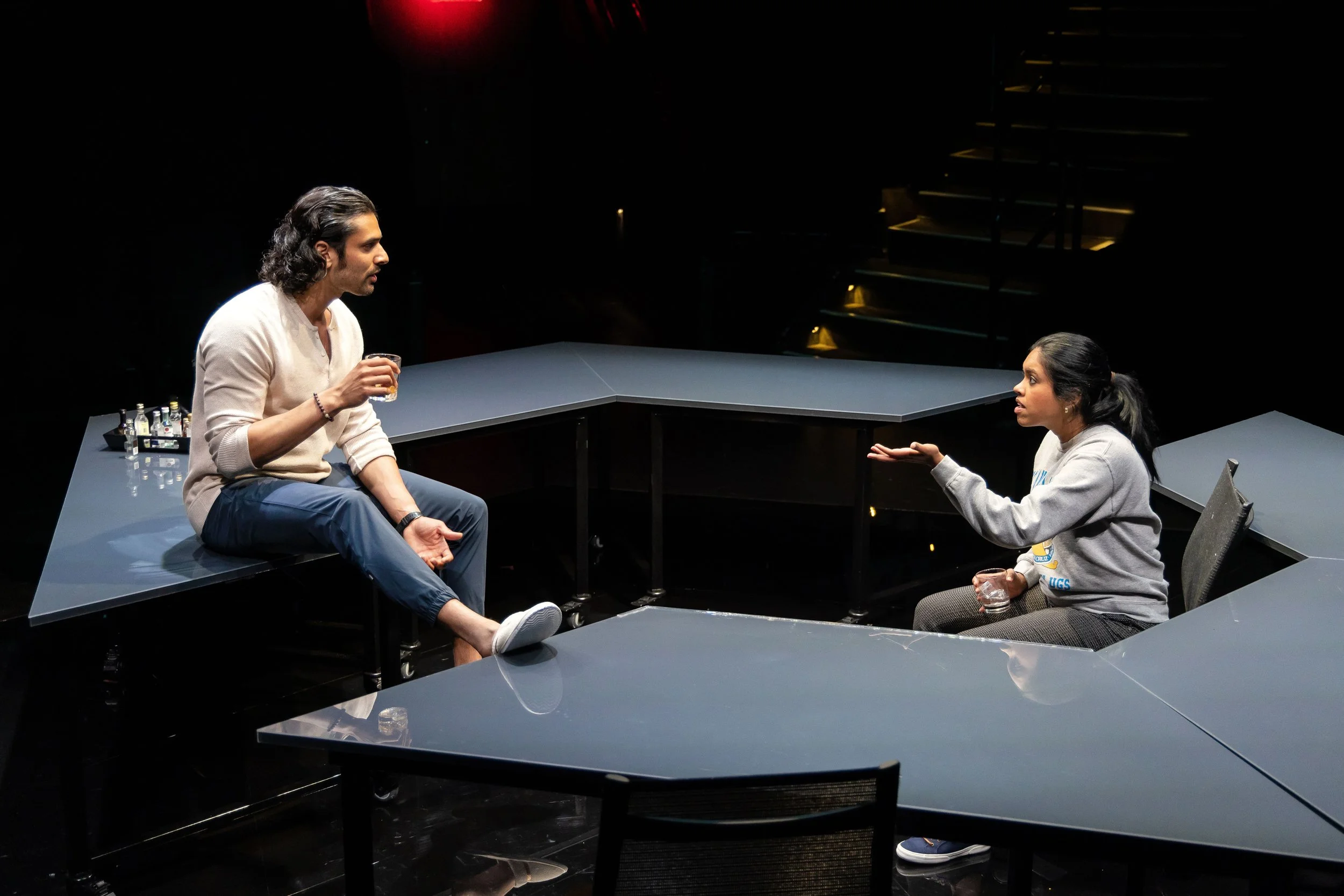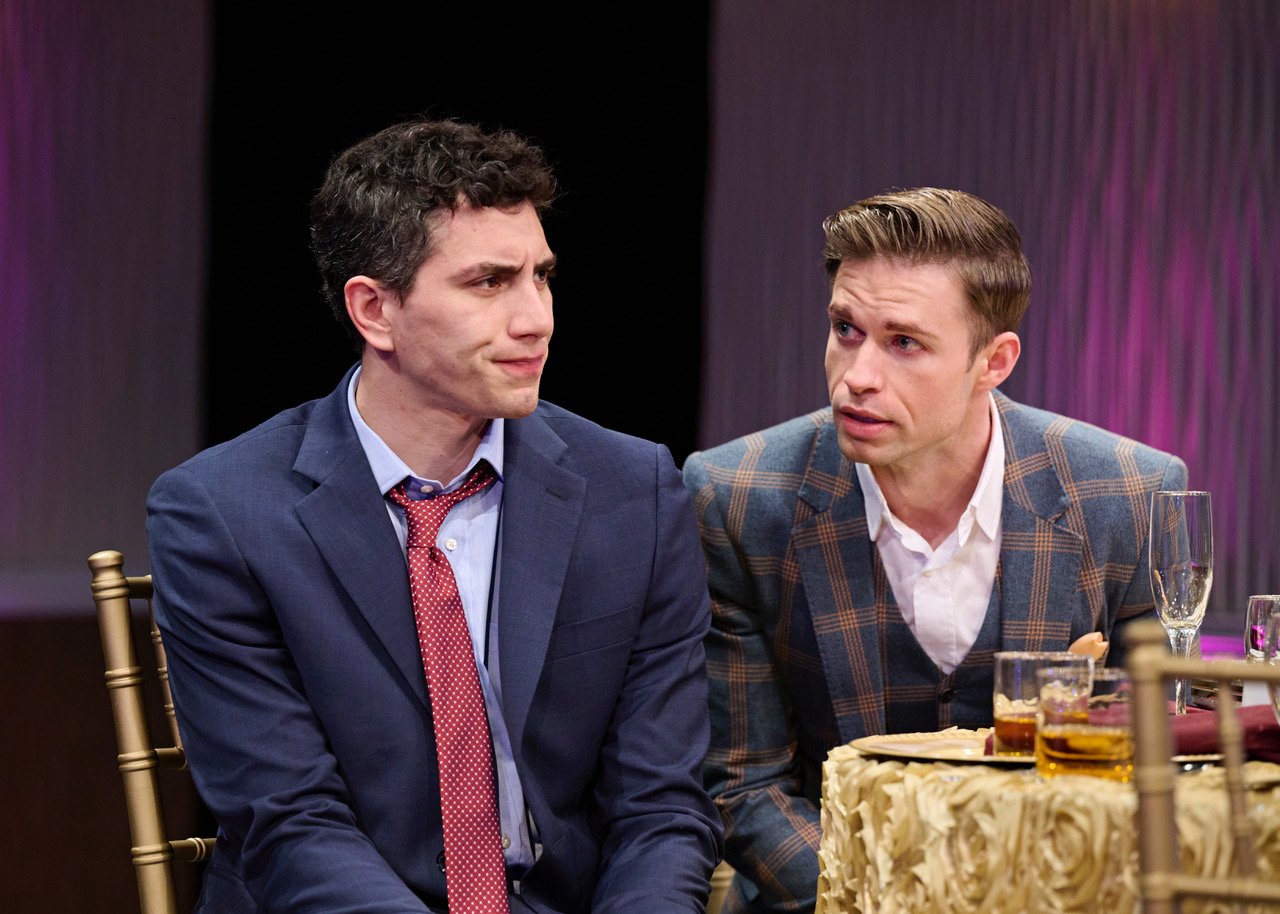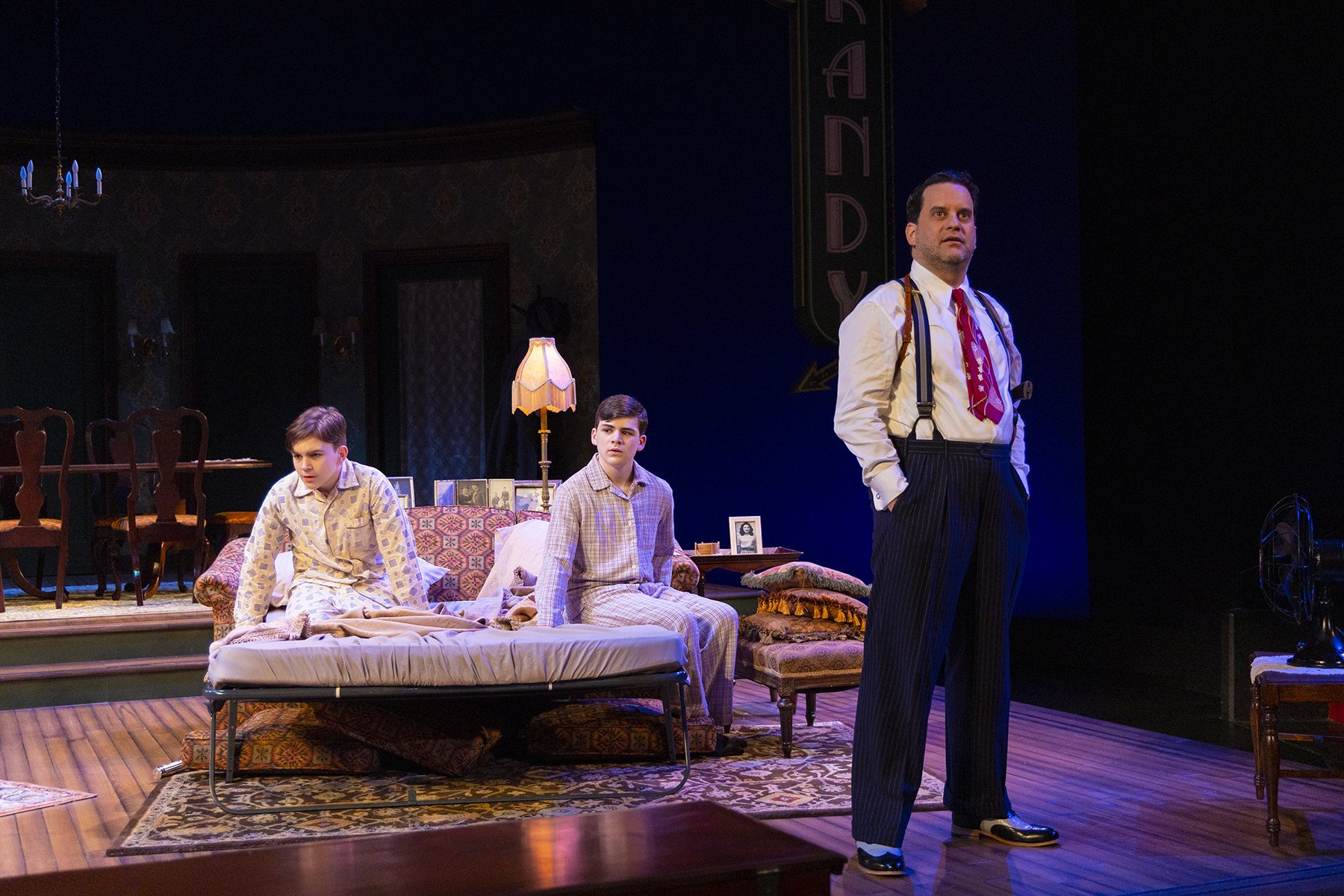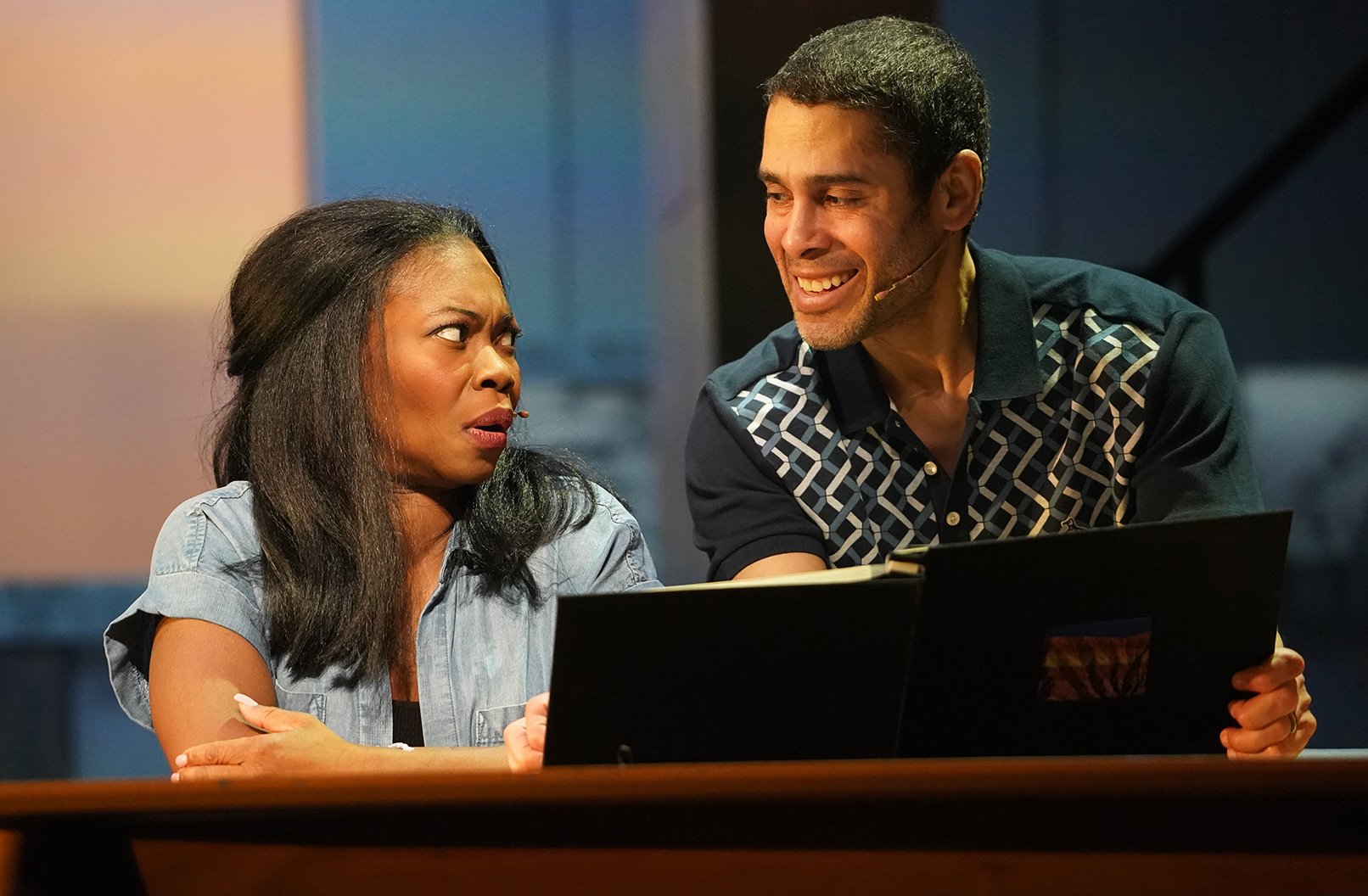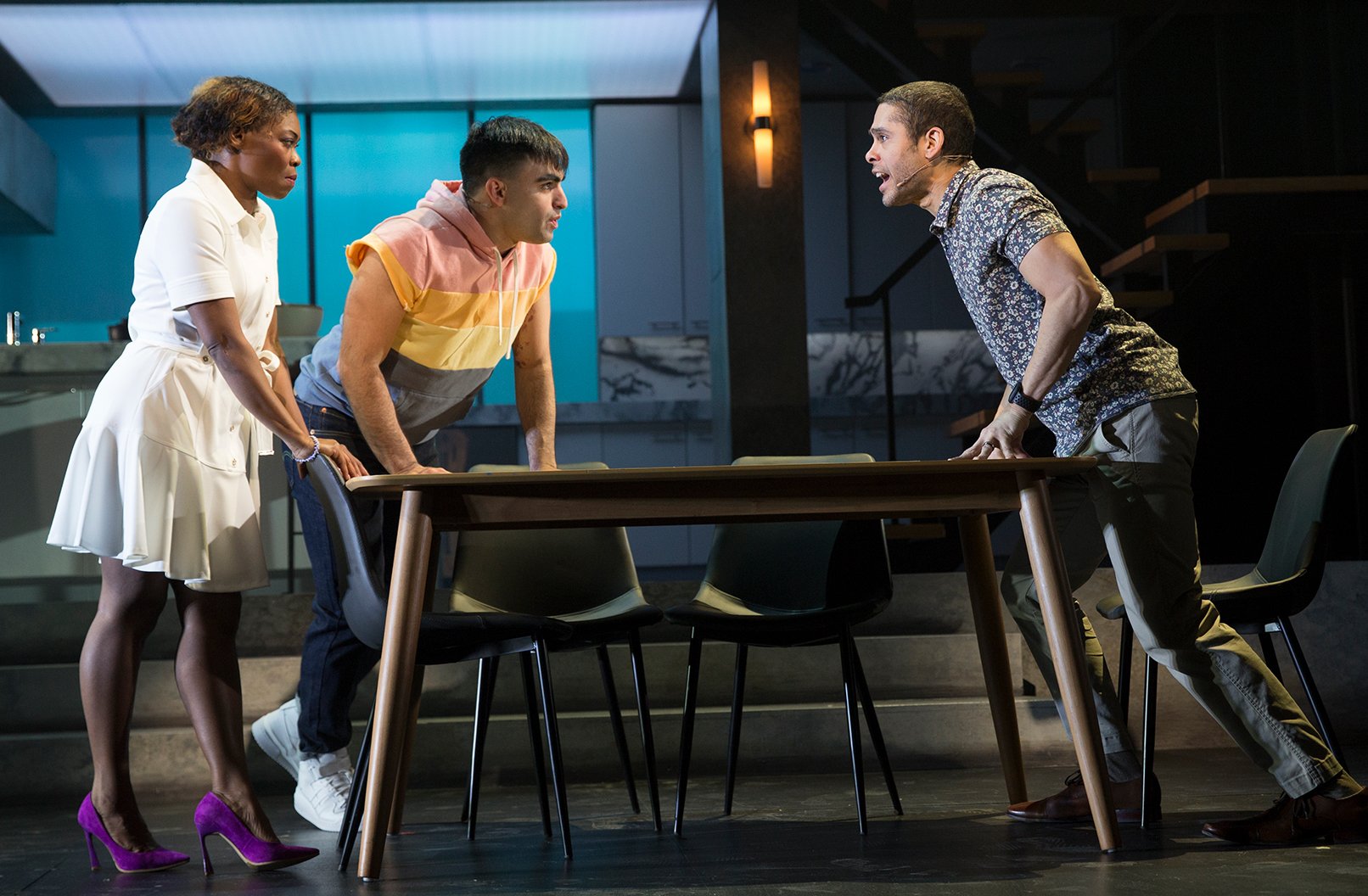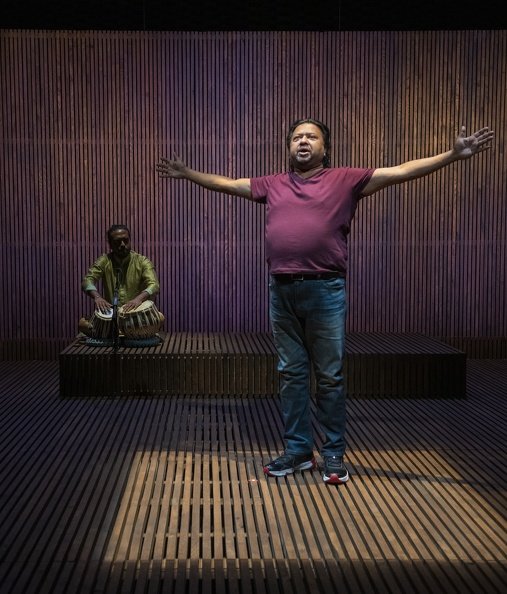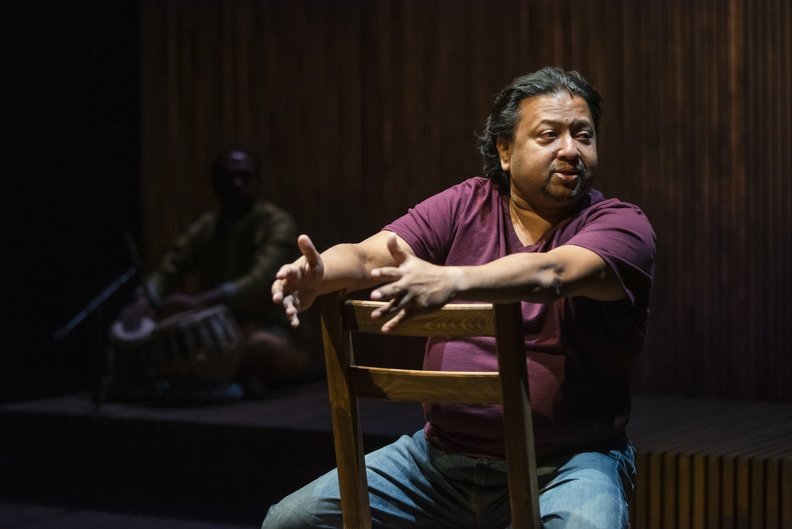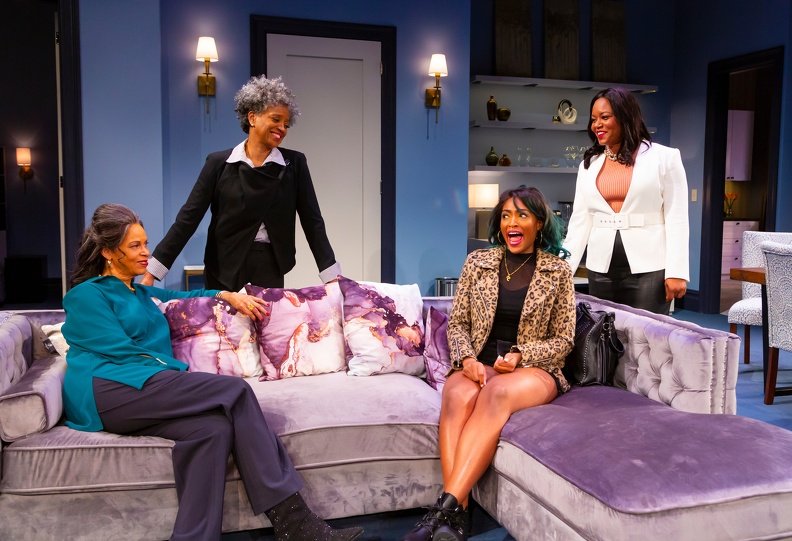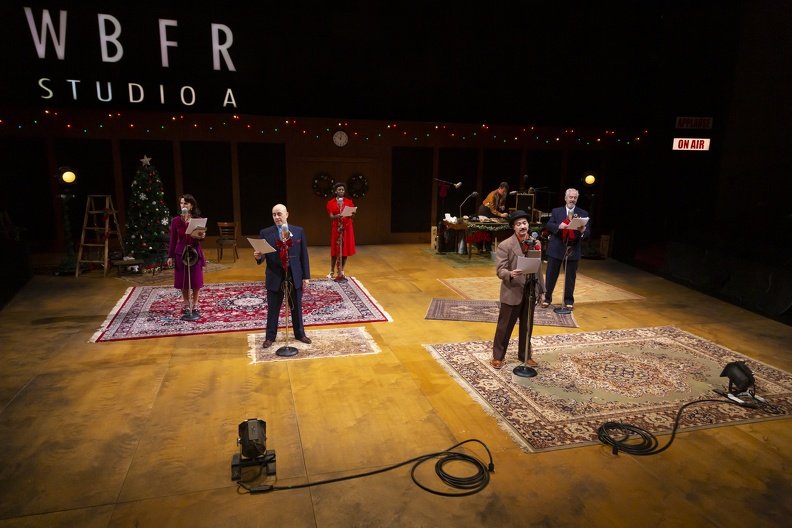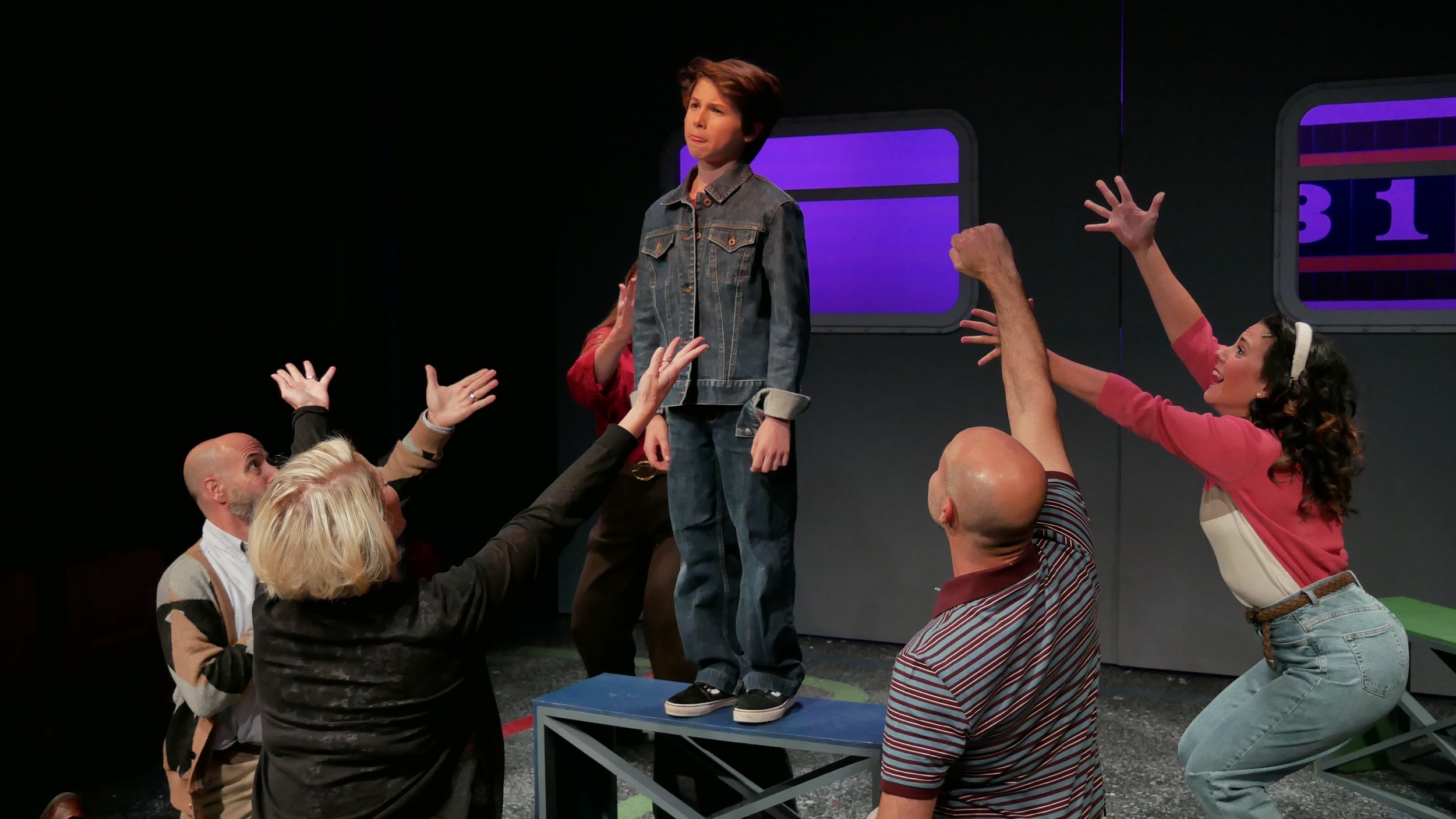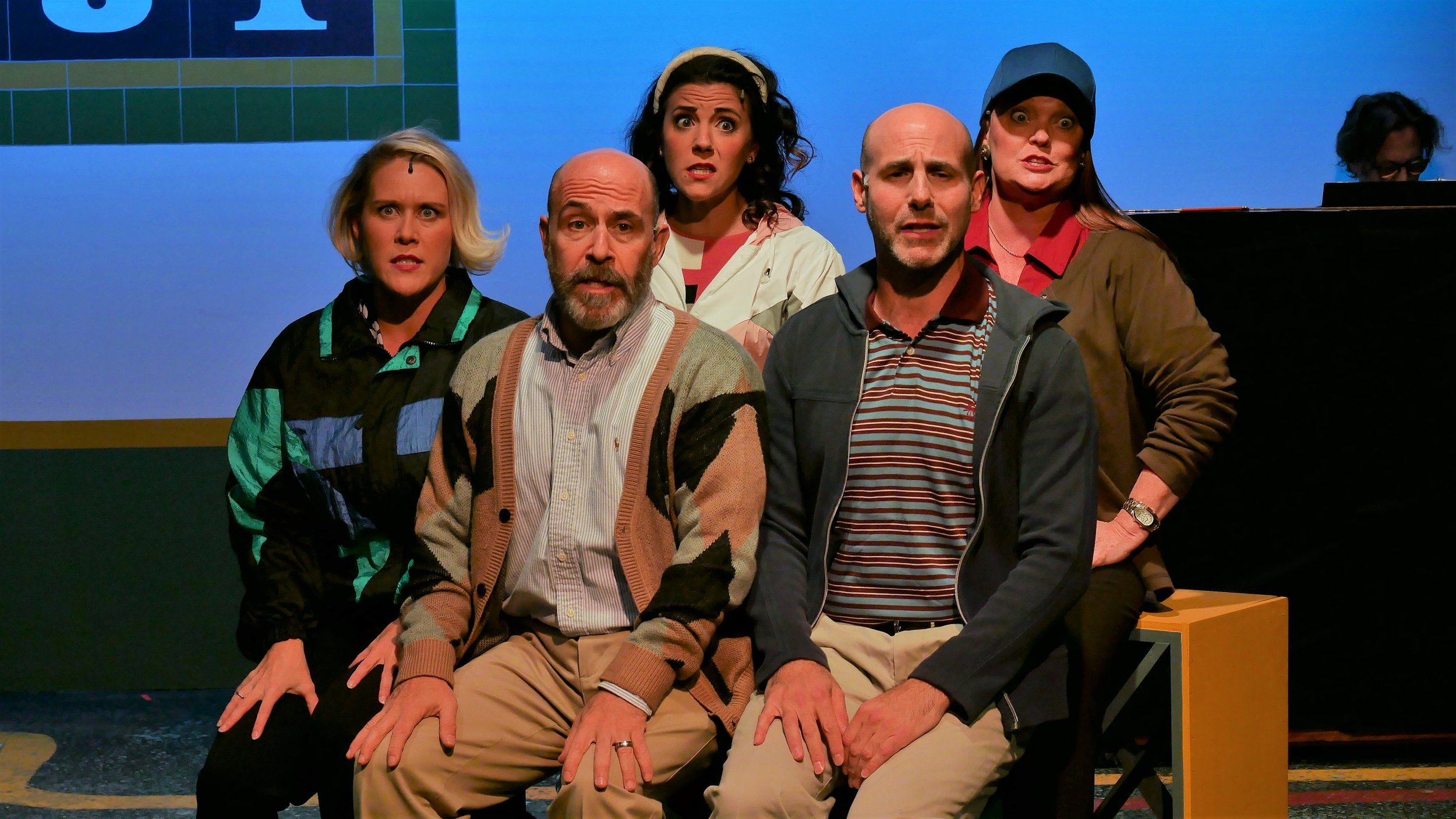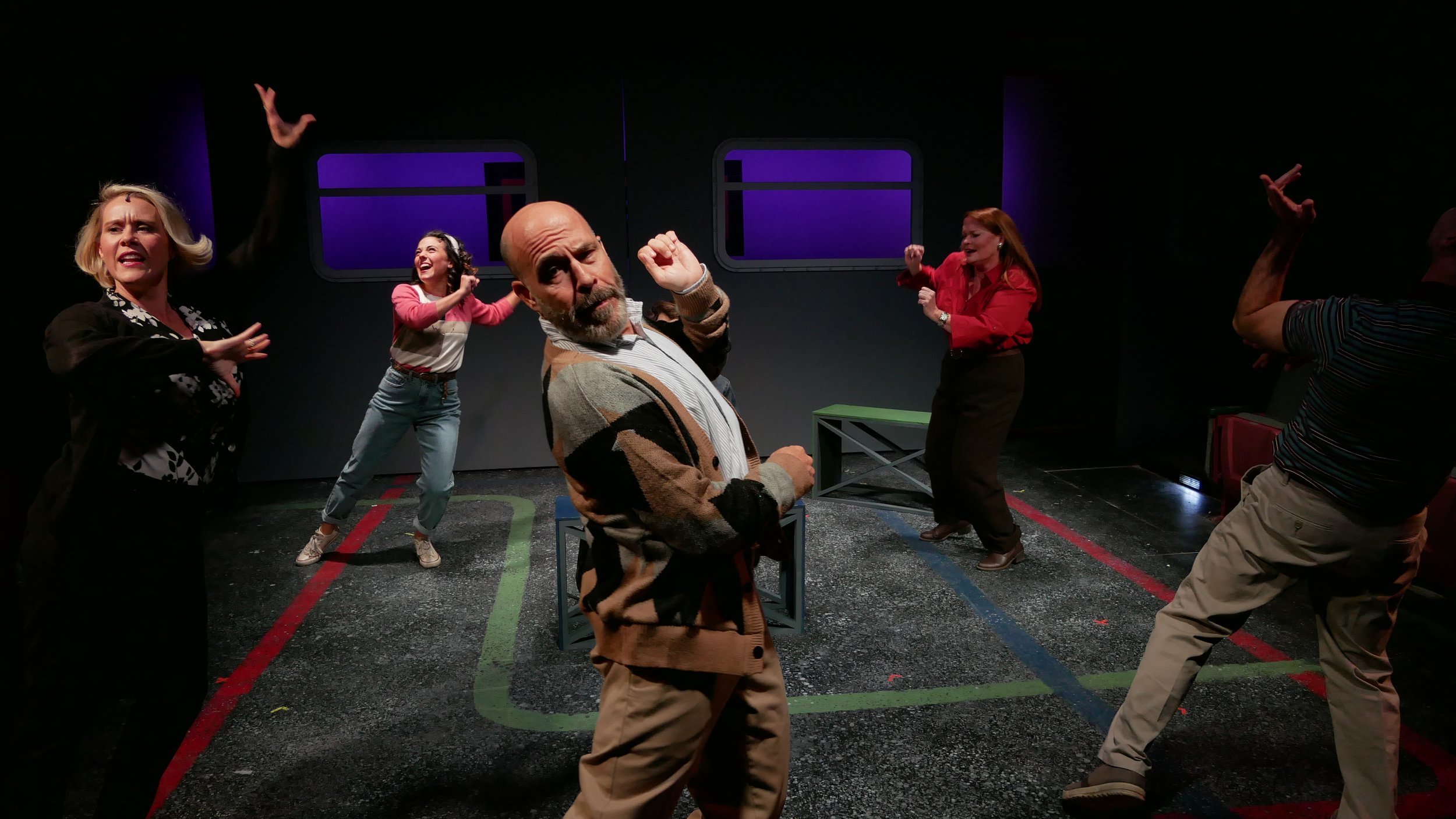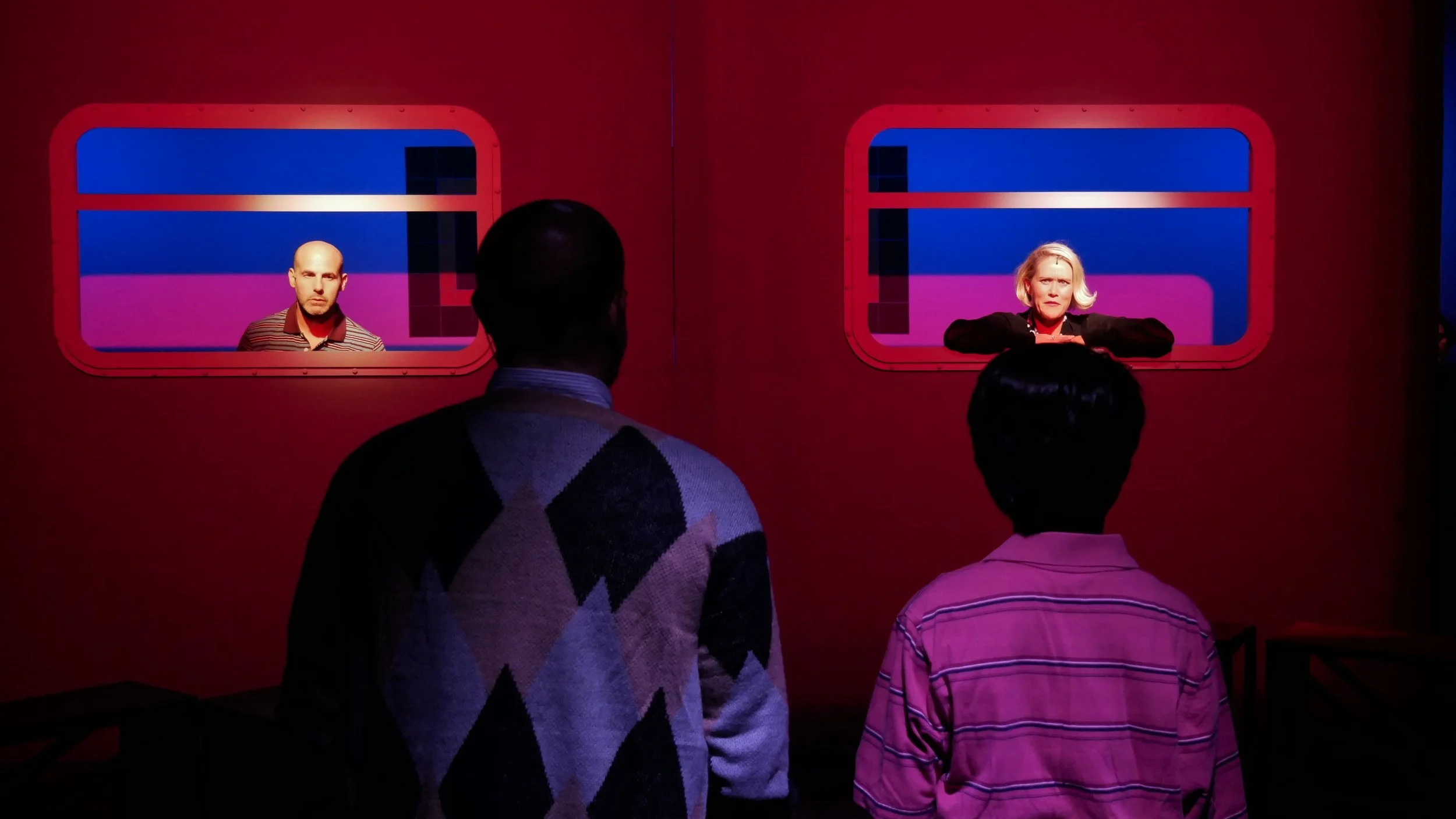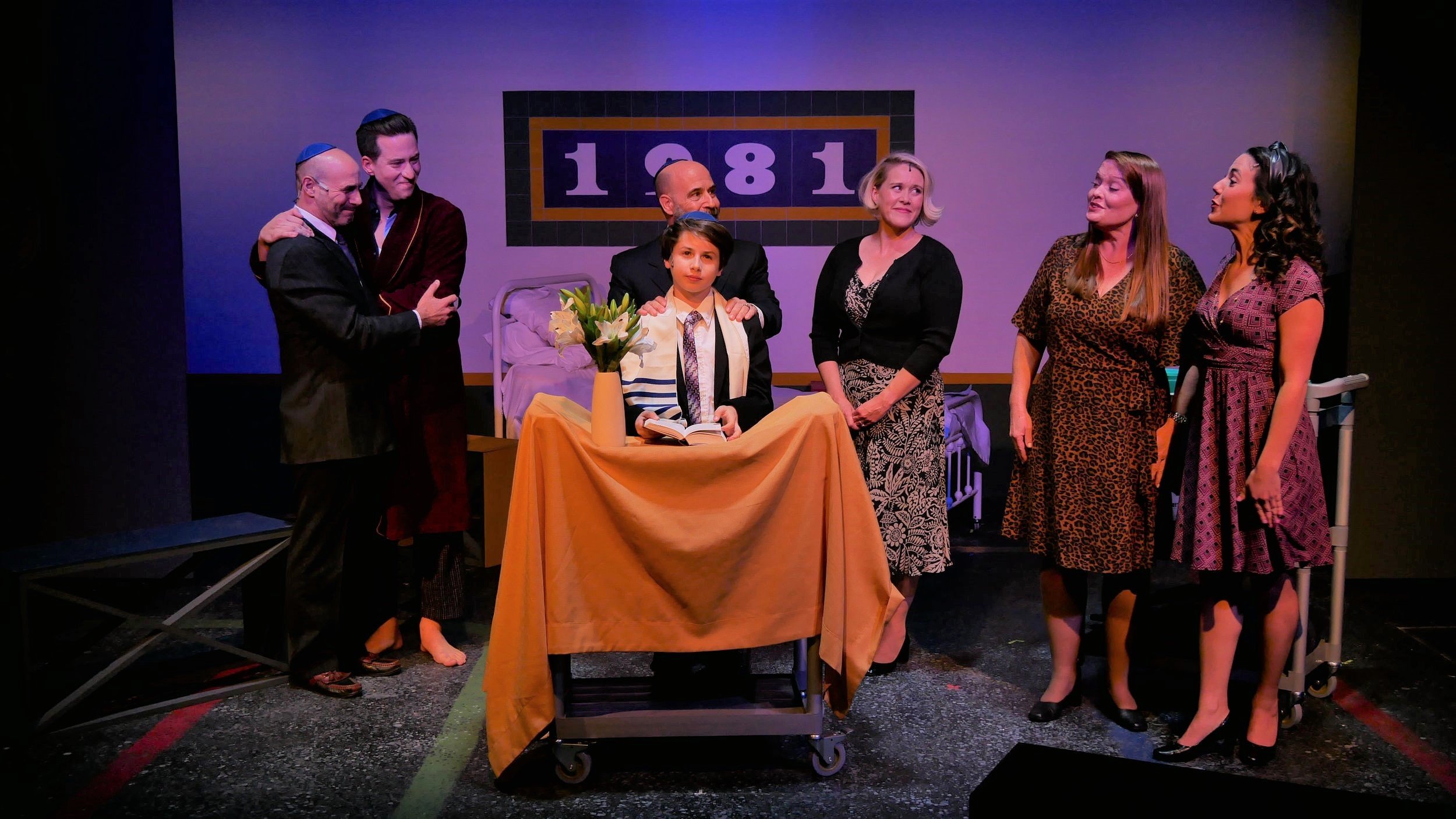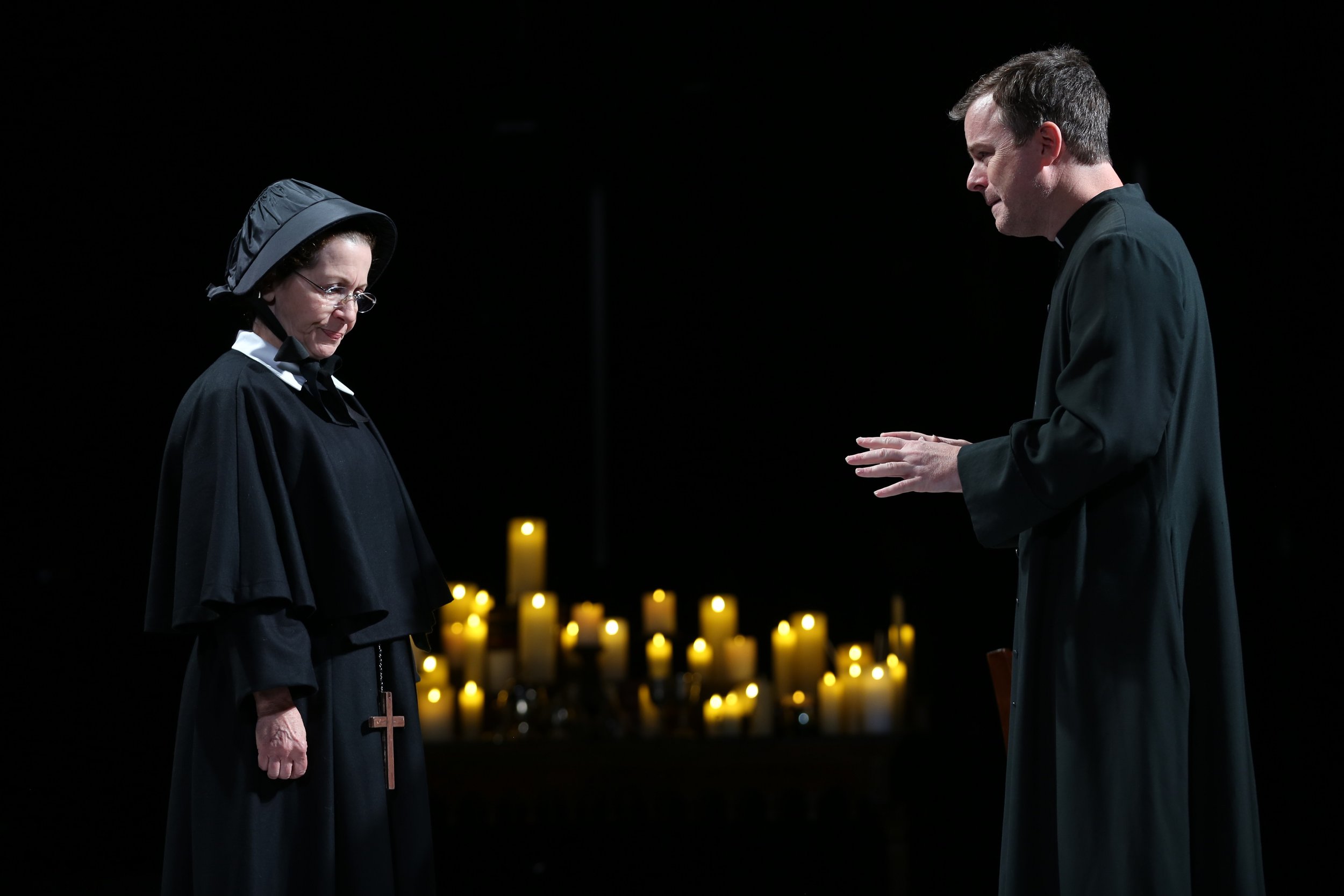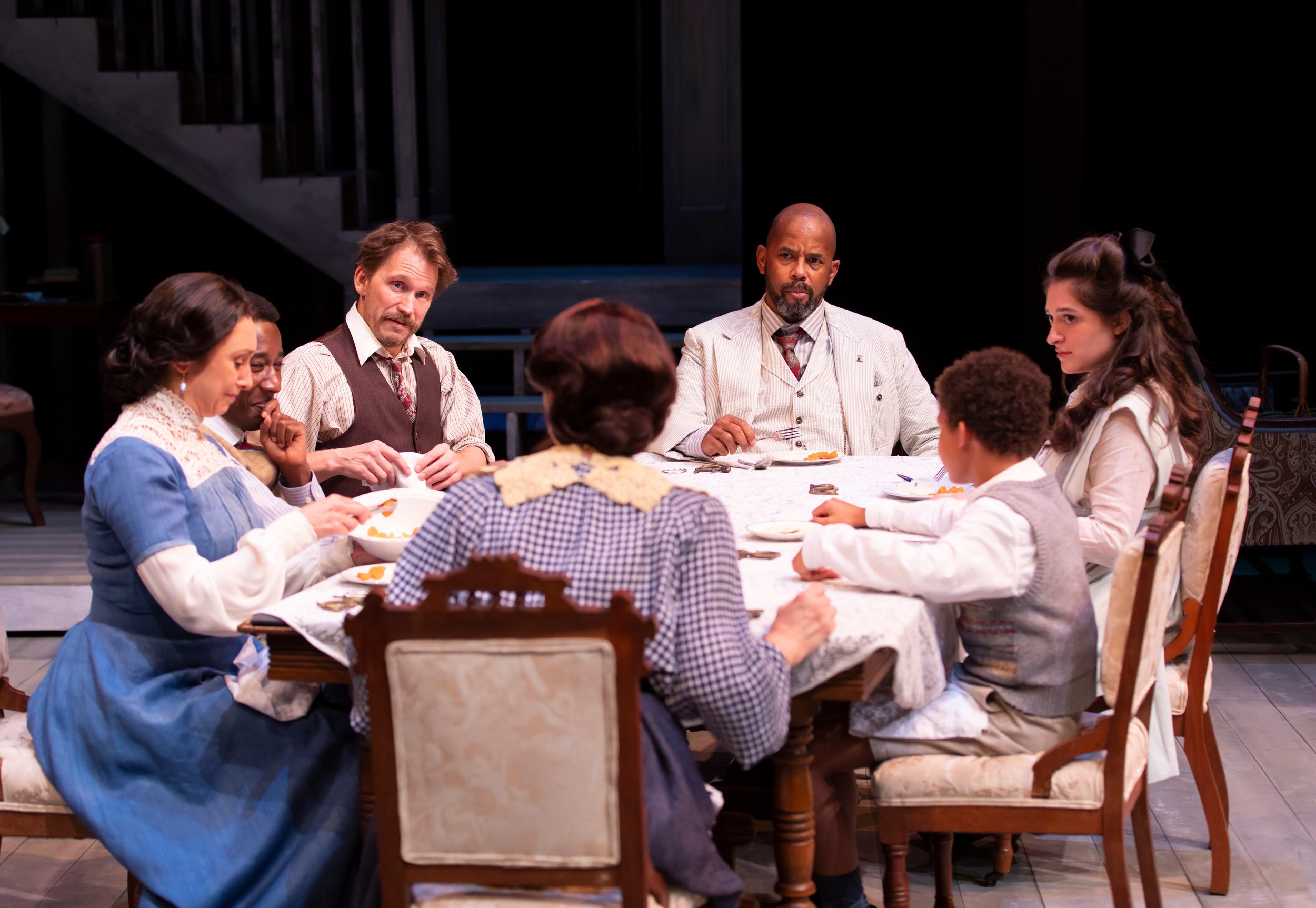On Chapel Street, in the New Haven Theater Company’s black box theater behind the English Market store, John Watson is at work bringing to life the local troupe’s first full production since Annapurna, which Watson also directed. For both shows, he also designed the complicated sets.
The new play is Goldfish by Jonathan Kolvenbach, and it opens tonight, playing Thursday through Saturday this weekend and next, March 2-11.
“If you’d asked me five years ago,” Watson reflected, “I wouldn’t’ve said I prefer directing to acting. But I’ve begun to.” To some extent that’s because, past a certain age, it’s hard to find roles that are worth doing, but it also must have something to do with the ability to chose plays that play to the strengths of the long-lived company. And those strengths are considerable; Watson, who has long experience in theater, stresses “the high IQ of the Company, the best I’ve ever worked with.” Annapurna showcased longtime Company members Susan Kulp and J. Kevin Smith in a provocative, gripping play about exes. Now Watson directs a cast of four, all relatively new to the Company or to working with Watson, in a “terrific take on young love” finding itself in the midst of parental misguiding.
As Watson points out, this is the second play by Kolvenbach that NHTC has assayed. Love Song, which featured the couple Susan and George Kulp and their daughter Jo, along with Company regular Christian Shaboo, was co-directed by Watson and NHTC regular Margaret Mann in 2018. It was a play of interesting characters fueled by good dialogue. And those are some of the key ingredients NHTC—where agreement on a play chosen to be produced must be unanimous—look for. When Watson and Mann began searching for plays to suggest to the Company, they naturally turned to scripts by authors whose plays had worked in the past. Goldfish—a four hander—had, Watson said, “the right energy, and we felt it would be good to do coming out of hiatus.” It’s also a chance for NHTC to “find new legs with new members.”
The entire cast of Goldfish are relative newcomers to New Haven Theater Company, which has existed since the late 2000s with a core group dating back many years, and now has nine new members. That in itself is a good sign. For the current show, three new members—Sara Courtemanche, Sandra Rodriguez, John Strano—are in the cast, joined by guest player Nick Fetherston, and three others are working in the show’s tech. It’s a busy show of twelve scenes played without intermission over 80-90 minutes on a set with two distinct sides and a black flat in the middle.
The conflict in the show is intergenerational and that means it’s a good play for both younger and more mature roles. The main question of the play, Watson says, is “whether the trauma of the parents (who are both now single) messes up” the college-aged lovers. The pleasure in the script, for Watson, is that these are “all smart people, the dialogue is enjoyable, funny, witty, and that all the characters have a way with words.”
There’s also what Watson sees as the meaning of the play, or what makes it all hang together. As the show’s director, Watson says, he’s read the play 50-60 times. He continues to see new things in how well the play is crafted, in drawing its parallels between characters and in how it shows that “love, although it can be disastrous, is the only thing that makes life work."
Loving theater is a requisite of making it work as well, and the latest production to be offered by the New Haven Theater Company has the promise of fitting in well with its history of showcasing well-written plays with engaging characters in complex situations. In attending the show, let’s say, you won’t just be fishing for gold.
Goldfish
By Jonathan Kolvenbach
Directed by John Watson
New Haven Theater Company
English Building Market
839 Chapel Street
New Haven
March 2, 3, 4, 10, 11: 8 pm
March 9: 7:30 pm
